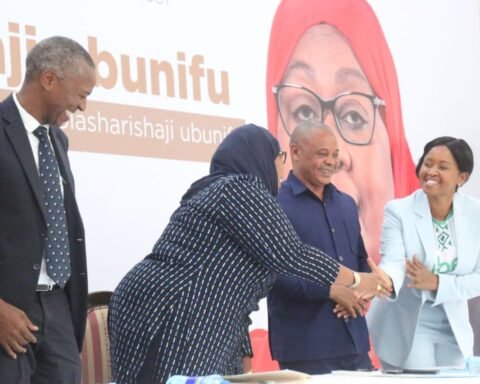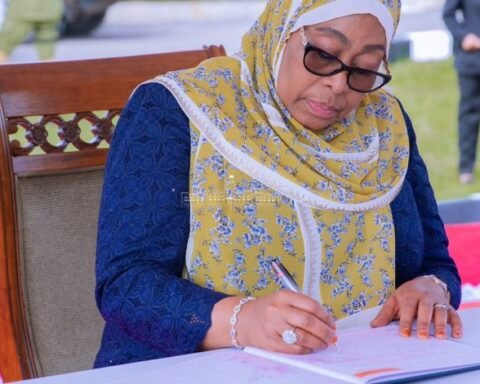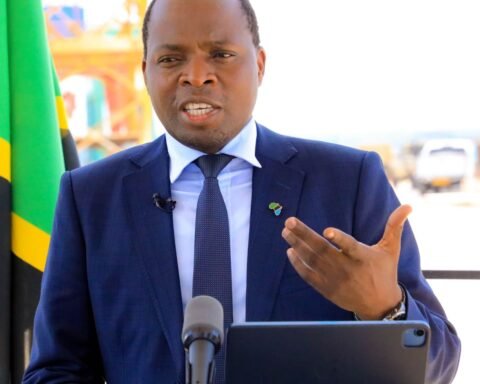In a move aimed at empowering Tanzanian citizens ahead of the country’s crucial national elections, Attorney General Hamza Johari has called for the urgent translation of all election-related laws into Kiswahili.
Speaking during his visit to the Office of the Chief Parliamentary Draftsman (OCPD) pavilion at the ongoing Dar es Salaam International Trade Fair (DITF)—commonly known as Sabasaba—Mr. Johari emphasized that access to justice begins with language accessibility.
“We must make sure that our people understand the laws that govern them, especially ahead of the 2025 General Election,” said Mr. Johari. “Putting these laws in Kiswahili ensures every citizen knows their rights and responsibilities.”
Johari’s directive came after he engaged with citizens and staff at the pavilion, many of whom raised concerns about the barriers created by legal English in important documents.
Mariam Possi, a senior legal drafter with the OCPD, said public interest in understanding how laws are made was exceptionally high this year. She noted that most questions revolved around the law-making process, how citizens could access revised laws, and the availability of legal documents in Kiswahili.
“People were particularly interested in where to find the updated 2023 laws and whether they exist in Kiswahili,” Possi shared. “We see this as a wake-up call to accelerate legal translation.”
The translation initiative forms part of a broader national effort to promote rule of law and enhance civic education. For many Tanzanians, legal understanding remains out of reach due to language barriers—despite Kiswahili being the national and most widely spoken language.
Also Read; Africa’s Richest Four Now Outweigh Half the Continent
With Tanzania preparing for its October 28, 2025 elections, civic inclusion has become more urgent than ever. Legal experts say ensuring that all eligible voters understand electoral laws is essential for a fair and informed election.
“The Constitution of Tanzania gives every citizen the right to participate in national affairs,” said one legal observer. “But if the laws are in a language they don’t speak fluently, how can they truly participate?”
The Sabasaba Fair, once known primarily as a trade showcase, has evolved into a powerful platform for public education. Various government institutions, including legal bodies, now use it to bring services and knowledge directly to the people.
Johari’s message was clear: democracy doesn’t thrive on silence or confusion. It grows when people understand and act on their rights.
“When the law is in Kiswahili, it becomes a tool, not a barrier,” he said. “That’s the future we are building—a democracy where every voice counts.”
The coming months will test how quickly legal institutions can respond to this call. But for many Tanzanians, the prospect of finally being able to read the laws that govern their votes—in their own language—is a step toward real people-centered governance.







